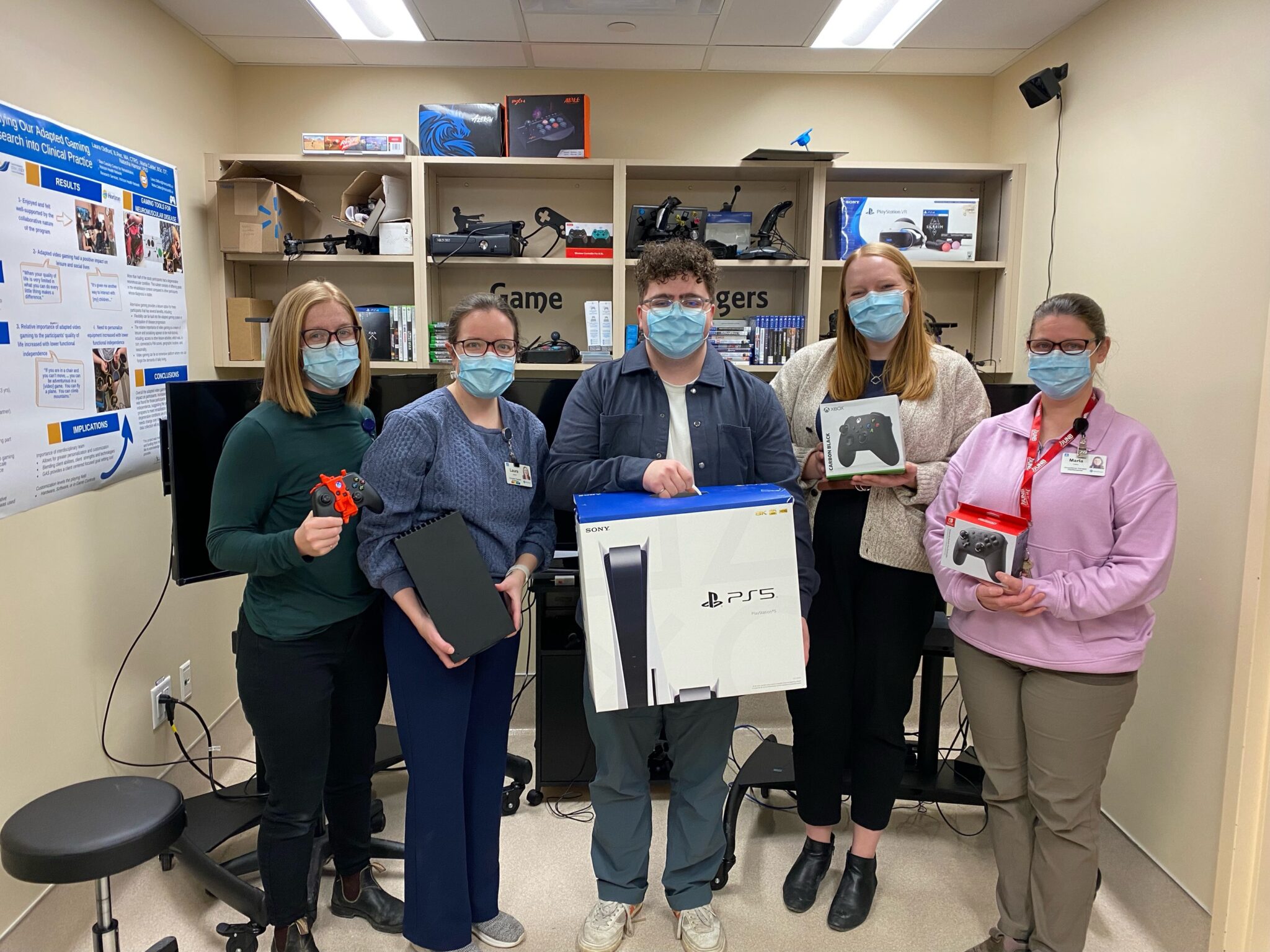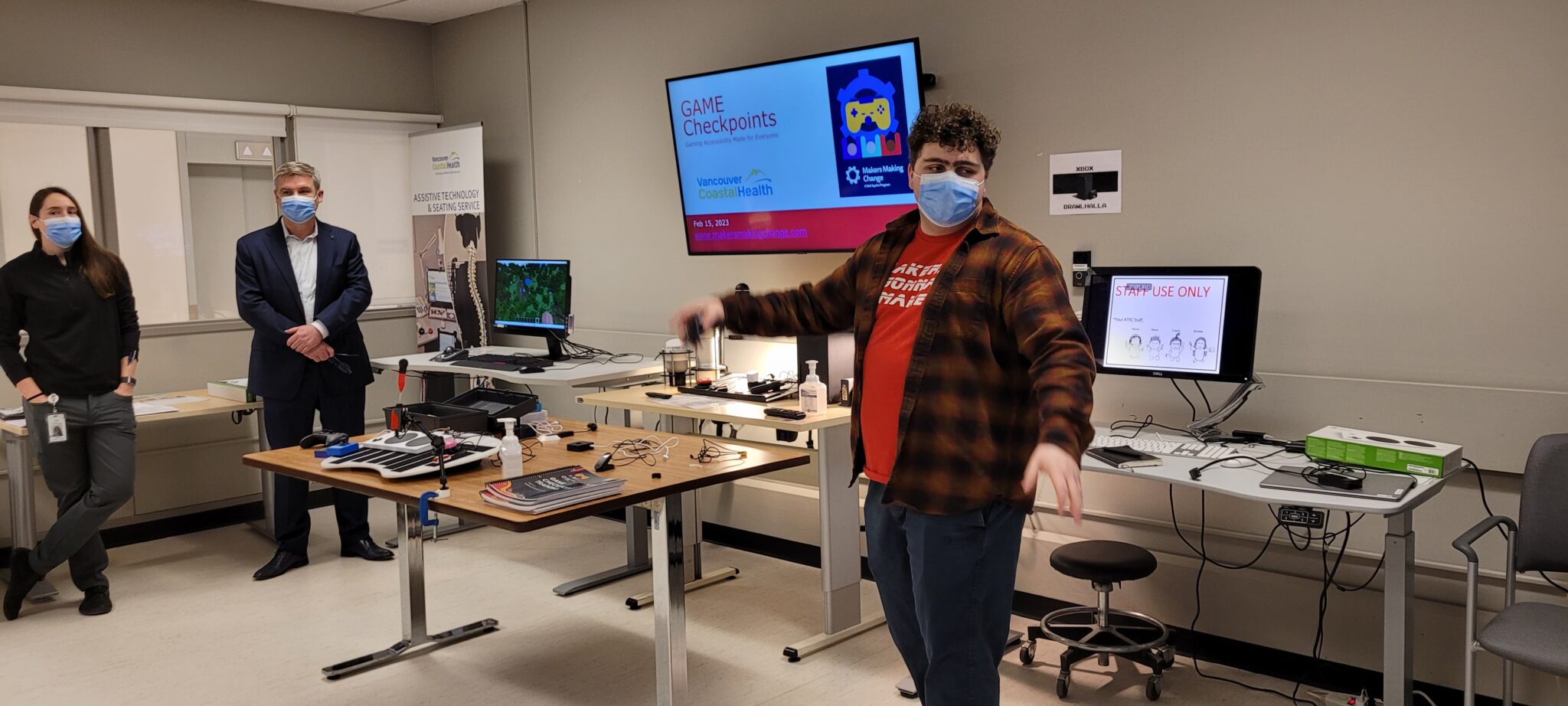
Dating back to the Access Makeathon in 2017, Adapted Gaming has been a key focus of Makers Making Change (new window) since its inception as a Neil Squire program. Devices in our library have helped people with disabilities access gaming, and we’ve hosted a number of events through the years.
But over the last year, we’ve really kicked our Adaptive Gaming efforts into overdrive. A large part of that is with our GAME Checkpoint initiative. (GAME working both well on its own as part of the title, and as an acronym, Gaming Accessibility Made for Everyone).
The initiative sees us working with community partners across Canada including rehab hospitals, and we provide them with gaming gear, resources, and training. Our partners become GAME Checkpoints where people with disabilities can access those resources.

Right now, Makers Making Change is partnered with two rehab hospitals as part of the GAME Checkpoint initiative — Stan Cassidy Centre for Rehabilitation in Fredericton, New Brunswick and GF Strong Rehabilitation Centre in Vancouver, BC.
Through this initiative, we have provided funding for the purchase of consoles, controllers, assistive technology, and more that the GAME Checkpoints can use with their clients. We have worked to address barriers like access to knowledge by creating resources (new window) and training staff at GAME Checkpoints in Adapted Gaming.
Adapted Gaming set-ups can be quite costly — sometimes up to $3,000 per client — and typically finding the right set-up for a client’s needs involves a lot of trial and error. Having a clinic equipped with the right tools and professionals equipped with that gaming knowledge allows for a client to find the right tools to help them game, without needing to spend a lot of money on their own to find out what works and what doesn’t.
“It’s really difficult getting it right the first time, if we have a dedicated space for this, we can make it much easier,” says GAME Checkpoints lead Tyler Fentie.
As part of this initiative, we’re also connecting the GAME Checkpoints with each other so they can share resources with each other, and we’re connecting them with partners like AbleGamers (new window).
We are also supporting gaming in many different spaces. Neil Squire offices in Burnaby and Calgary will have Adapted Gaming education centres. As well, we are working with game developers to get more people with disabilities to join playtesting sessions which in turn will make games more accessible right from the start.
Through GAME Checkpoints, we’ve already seen a large increase in the number of gamers with disabilities and clinicians we’ve been able to help. This is just the start as we work to tackle the accessibility challenges within gaming.
This post originally appeared on the Makers Making Change (new window) website.
